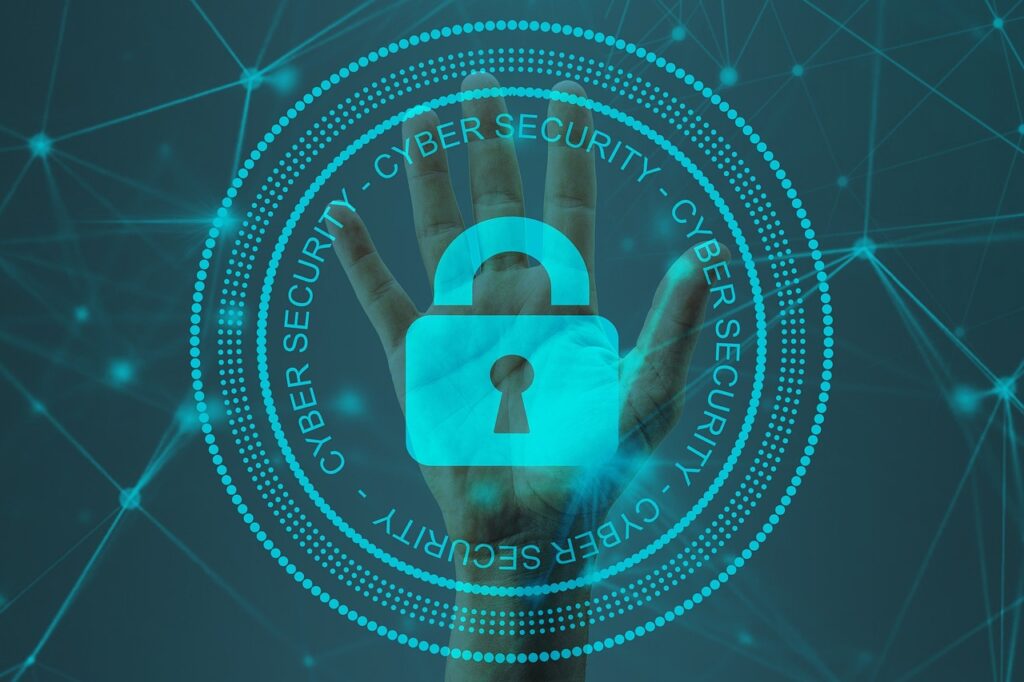Cybersecurity has become an increasingly critical concern in today’s interconnected world, where individuals, businesses, and governments alike rely heavily on digital systems and technologies. The importance of cybersecurity stems from the need to protect sensitive information, maintain business continuity, safeguard critical infrastructure, and ensure compliance with regulations. In this topic, we will explore the various reasons why cybersecurity is important and the potential consequences of inadequate security measures.
- Protecting Sensitive Data and Personal Information:
In the digital age, vast amounts of sensitive data, including personal information, financial records, intellectual property, and trade secrets, are stored and transmitted electronically. Cybercriminals and malicious actors are constantly seeking ways to gain unauthorized access to this data, which can lead to identity theft, financial losses, and competitive disadvantages. Effective cybersecurity measures, such as encryption, access controls, and secure data handling practices, are essential to protect this sensitive information from falling into the wrong hands. - Maintaining Business Continuity:
Cyber attacks, such as malware infections, distributed denial-of-service (DDoS) attacks, or ransomware, can disrupt business operations, causing downtime, loss of productivity, and financial losses. A single successful cyber attack can cripple an organization’s ability to function, potentially leading to significant revenue losses, damage to reputation, and loss of customer trust. By implementing robust cybersecurity measures, organizations can ensure the continuity of their critical systems and services, minimizing the impact of potential attacks and maintaining business operations. - Protecting Critical Infrastructure:
Cybersecurity is crucial for safeguarding critical infrastructure, such as power grids, transportation systems, healthcare facilities, and financial institutions. Cyber attacks on these vital systems can have devastating consequences, potentially endangering human lives, causing widespread disruptions, and undermining national security. As these critical infrastructures become increasingly interconnected and reliant on digital technologies, cybersecurity measures are essential to protect them from cyber threats and ensure their resilience. - Enabling Secure Innovation:
As organizations embrace digital transformation and adopt new technologies, such as cloud computing, Internet of Things (IoT), and artificial intelligence (AI), cybersecurity becomes a fundamental enabler of secure innovation. Failing to integrate robust security measures into these new technologies can leave organizations vulnerable to cyber attacks, compromising their investments and exposing them to significant risks. By prioritizing cybersecurity from the outset, organizations can confidently pursue innovation while mitigating potential threats and ensuring the secure deployment and operation of new systems and applications. - Compliance with Regulations:
Many industries and sectors are subject to regulatory requirements related to data protection and cybersecurity. For example, the General Data Protection Regulation (GDPR) in the European Union and the California Consumer Privacy Act (CCPA) in the United States impose strict rules on the protection of personal data. Financial institutions must comply with regulations like the Gramm-Leach-Bliley Act (GLBA) and the Payment Card Industry Data Security Standard (PCI DSS). Non-compliance with these regulations can result in hefty fines, legal implications, and loss of consumer confidence. Implementing robust cybersecurity practices is essential for organizations to meet these regulatory obligations and avoid costly penalties. - Protecting Reputation and Customer Trust:
Data breaches and cyber attacks can severely damage an organization’s reputation and erode customer trust. In today’s highly connected world, news of a security breach can spread rapidly, leading to negative publicity, loss of customer confidence, and potential financial consequences. Organizations that prioritize cybersecurity and take proactive measures to protect customer data are more likely to maintain a positive brand image, customer loyalty, and a competitive advantage in the market. - Mitigating Cyber Threats and Evolving Risks:
Cyber threats are constantly evolving, with new attack vectors and techniques emerging regularly. Cybercriminals are becoming increasingly sophisticated, leveraging advanced technologies like artificial intelligence (AI) and automation to conduct large-scale, automated attacks. Additionally, the growing adoption of emerging technologies, such as the Internet of Things (IoT) and 5G networks, introduces new attack surfaces and potential vulnerabilities. Effective cybersecurity measures, including continuous monitoring, regular risk assessments, and ongoing security enhancements, are essential to stay ahead of these evolving threats and mitigate associated risks. - Fostering Trust and Enabling Collaboration:
Cybersecurity is not only important for protecting individual organizations but also for enabling trusted collaboration and information sharing among partners, suppliers, and stakeholders. By implementing robust security measures and demonstrating a commitment to cybersecurity, organizations can foster trust and facilitate secure data exchange, which is crucial for seamless business operations and effective partnerships.
The outcomes of lacking network safety measures can be serious and broad. Information breaks can prompt monetary misfortunes, reputational harm, and lawful liabilities. Functional disturbances brought about by digital assaults can bring about lost efficiency, income misfortunes, and possibly even business conclusion. Moreover, inability to agree with guidelines can bring about significant fines and lawful outcomes.
In conclusion, cybersecurity is a critical necessity in today’s digital landscape. It is essential for protecting sensitive data, maintaining business continuity, safeguarding critical infrastructure, enabling secure innovation, and ensuring compliance with regulations. By prioritizing cybersecurity and implementing robust security measures, individuals and organizations can mitigate the risks associated with cyber threats, protect valuable assets, and foster trust with customers, partners, and stakeholders. As the digital world continues to evolve, the importance of cybersecurity will only continue to grow, making it an imperative investment for organizations of all sizes and industries.


